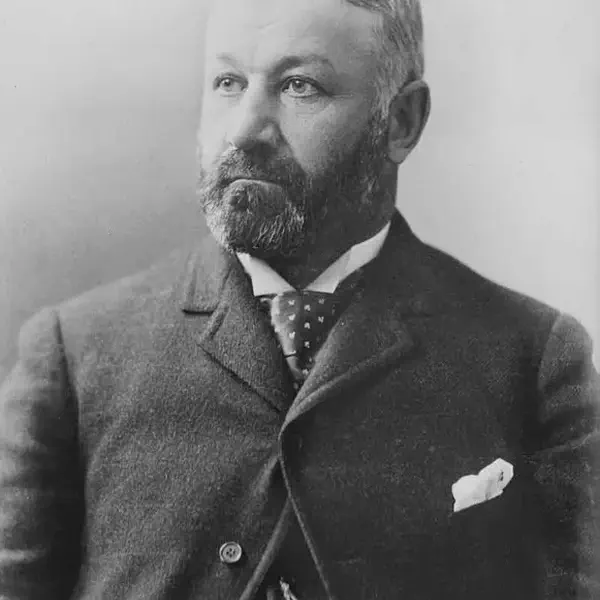
Richard Croker, Boss of Tammany Hall, NY, Born in Cork
November 23, 1841
Richard Welstead Croker, (November 24, 1843 – April 29, 1922) an influential American politician and a key figure in the history of Tammany Hall, was born on November 24, 1843, in the village of Stillorgan, County Dublin, Ireland. He was the son of Eyre Coote Croker (1800–1881) and Frances Laura Welsted (1807–1894).
At the age of two, he emmigrated with his parents emmigrated to the United States. They boarded the Henry Clay in Cobh, County Cork and headed for the land of opportunity.
He was known as “Boss Croker”, was an Irish American political boss who was a leader of New York City’s Tammany Hall and would later become a prominent figure in New York City politics during the late 19th and early 20th centuries.
Croker served as the leader, or “boss,” of Tammany Hall, which was a powerful political machine in New York City associated with the Democratic Party.
Tammany Hall played a significant role in city and state politics, and under Croker’s leadership, it became known for its control over appointments and patronage, often through less-than-savory means.
Richard Croker’s tenure as the boss of Tammany Hall lasted from the late 1880s into the early 20th century. His influence extended into various aspects of city governance, and his leadership style was both criticized and admired for its effectiveness in consolidating political power.
Croker eventually left New York for Ireland in 1901, and he lived there until his death in 1922. His legacy is often remembered as emblematic of the political machine era in American politics.
Tammany Hall
Tammany Hall was a powerful political organization and machine within the Democratic Party in New York City.
Formation and Early Years
Tammany Hall originated as the Tammany Society, a fraternal and benevolent organization founded in the late 18th century. It evolved into a political machine by the early 19th century.
Political Machine
Tammany Hall became synonymous with the concept of a political machine—a tightly organized and disciplined political party that used its influence to control government appointments, contracts, and services in exchange for political support.
Irish and Immigrant Influence
Tammany Hall gained substantial support from Irish immigrants, and many of its leaders, including figures like George Washington Plunkitt and Richard Croker, had Irish roots. The organization provided a political voice and patronage opportunities for immigrant communities.
Leadership
Boss Tweed, whose real name was William M. Tweed, was one of the most infamous leaders of Tammany Hall during the late 1860s. Richard Croker and later Charles Francis Murphy also played crucial roles as leaders (or “bosses”) of Tammany Hall in subsequent years.
Corruption and Reform
Tammany Hall was often associated with corruption, cronyism, and patronage. The Tweed Ring, a group of corrupt politicians led by Boss Tweed, was exposed for embezzling public funds. This led to significant reform efforts to dismantle the machine’s power.
Decline
The decline of Tammany Hall began in the early 20th century, as political reforms and changes in demographics weakened its influence. The machine continued to exist in some form into the mid-20th century, but its power diminished.
Legacy
Tammany Hall’s legacy is complex. While it was known for corruption and undemocratic practices, it also provided political representation and social services to immigrant communities. Its impact on the shaping of New York City politics is still studied and debated by historians.
Understanding Tammany Hall is crucial for grasping the dynamics of urban politics, party machines, and immigration in the history of the United States, particularly in the late 19th and early 20th centuries.